Track my order
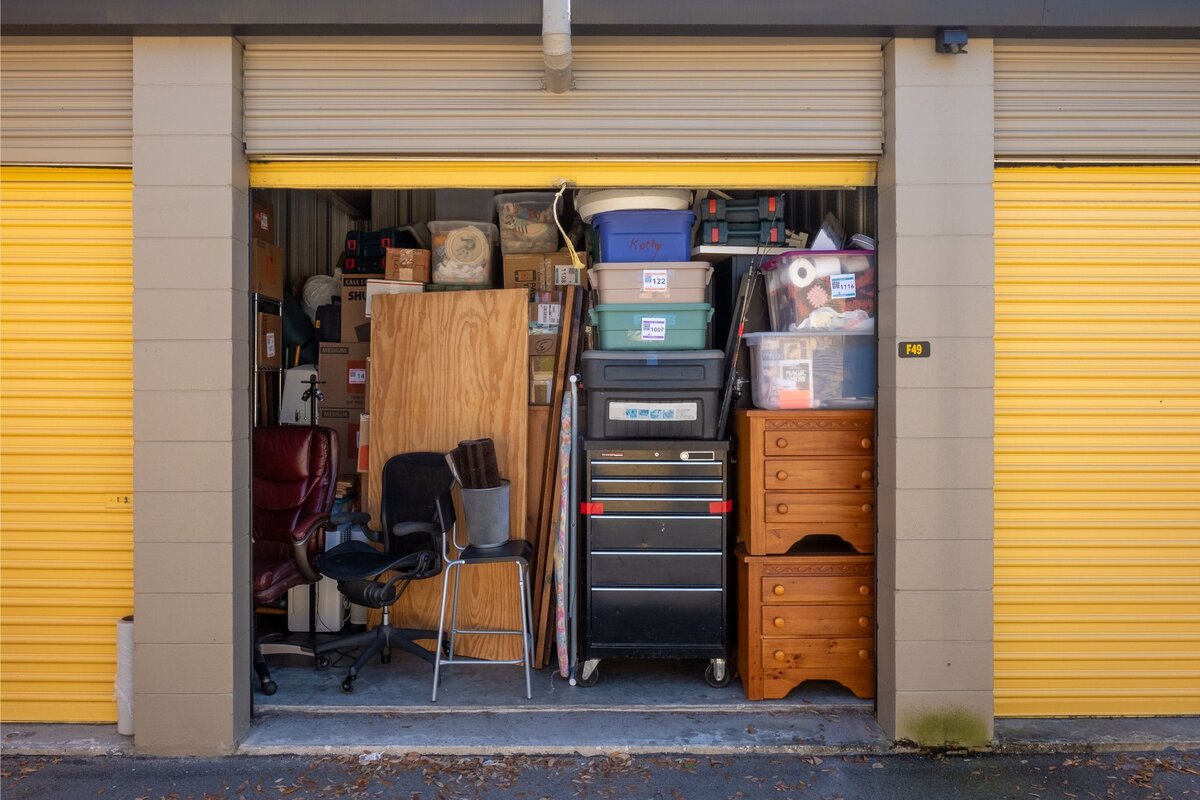
1. Introduction
Struggling to find proper storage in and around your property? You’re not alone. Research suggests that 54% of Americans are overwhelmed by the amount of clutter they have — but 78% of them have no idea what to do with it.
A rented storage unit may seem like your only option, but outsourced storage space also has its downsides. For example, you’ll have to store items away from your property and commute to the facility just to access anything you stashed away.
Luckily, a more convenient and economical storage unit alternative is emerging: shipping containers. Shipping container storage units can help anyone with their storage needs. If you’re a small business owner and you need a secure space to organize your inventory, you can use one. If you’re a farmer that needs a spot to keep seasonal equipment and supplies, you can use one. If you’re a regular homeowner that doesn’t have a garage to stash bicycles, patio furniture, and other outdoor items, you can use one.
In short: if you have something to store, you can find a top-quality shipping container for sale and use it as a personal storage unit.
What Makes Shipping Containers Good for Storage?
The qualities that make shipping containers ideal for shipping consumer goods across the ocean also make them ideal storage units. Here are some of the top reasons to buy a shipping container for storage.
1. Shipping Containers Have a Large, Standardized Storage Capacity
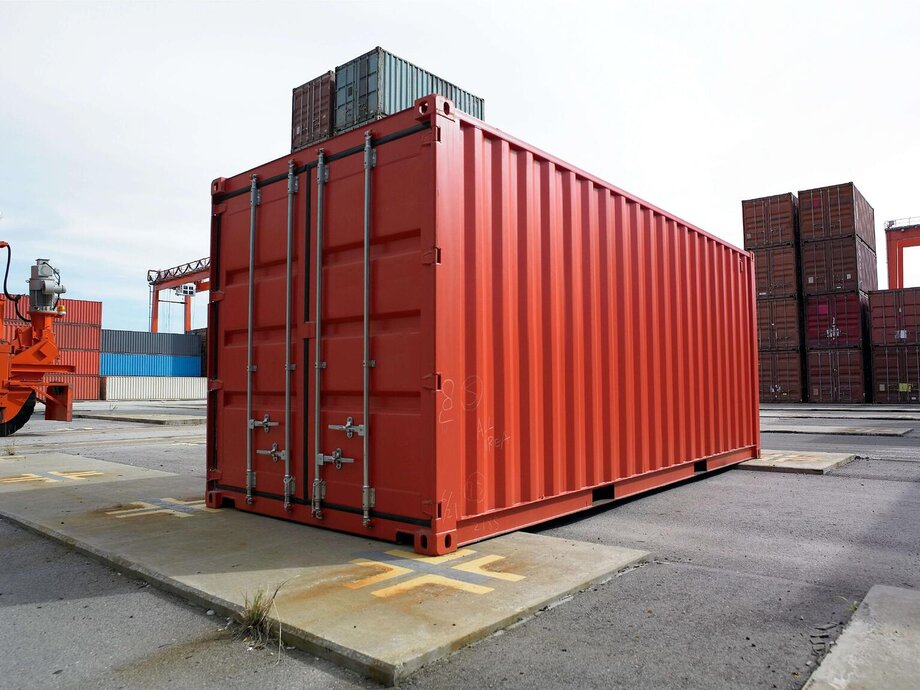
Shipping containers come in standardized sizes with excellent storage capacity. A 20ft container, for example, is capable of storing the equivalent of 200 standard mattresses, two compact cars, or 9,600 wine bottles. A 40ft container can hold 400 standard mattresses, four compact cars, or 19,200 wine bottles. In short, you can fit a lot of your items in a container without running out of space.
2. Shipping Containers Provide Weather Protection
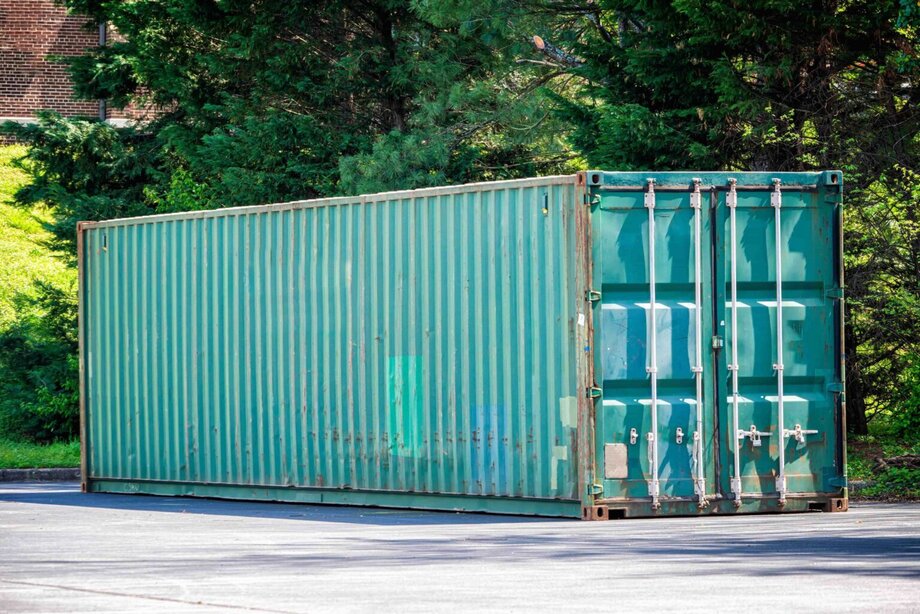
Shipping containers are designed to withstand decades of turbulent ocean journeys. They are made out of COR-TEN steel, a corrosion-resistant material that can bear the brunt of the elements — crucial for storage in areas that are prone to hurricanes. Even shipping containers that have retired from shipping after 12 to 15 years at sea remain wind and watertight.
So, you can rest assured that shipping container storage units will stay in top condition no matter the weather outside, and the contents inside will stay dry and damage-free.
3. Shipping Containers Are Secure
Shipping containers are great for storage because they’re self-enclosed. This guarantees privacy from prying eyes since no one can see what’s in the container. A standard issue container will only have one entry point that you can further secure with a weld-on or bolt-on lockbox.
For extra protection, you could also monitor your container doors with security cameras to further deter theft or vandalism.
4. Shipping Containers Are Easy to Keep Pest-Free

Pests breaching your storage area could be disastrous. They could contaminate your items and cause permanent damage. If you’re operating a product-driven business, they could make your inventory worthless and force you to lose out on profits.
Keeping pests at bay is another reason to consider buying shipping containers for storage units. Even well-used units — when purchased through a verified business like Boxhub — are wind and watertight with structurally sound floors. This ensures there are limited entry points for pests to infiltrate, protecting your items from pests like squirrels, raccoons, mice, and birds all year long.
5. Shipping Containers Can Be Placed on Your Property
Renting a storage unit can be inconvenient. After all, it’s not uncommon to realize something you need is in storage at the exact time you need it.
With a shipping container storage unit, you don’t have to travel far to access your belongings. As long as you have empty space on your property — and between 80-100ft of clearance space for delivery, depending on your container’s size — you can place a storage container within a stone’s throw of your home.
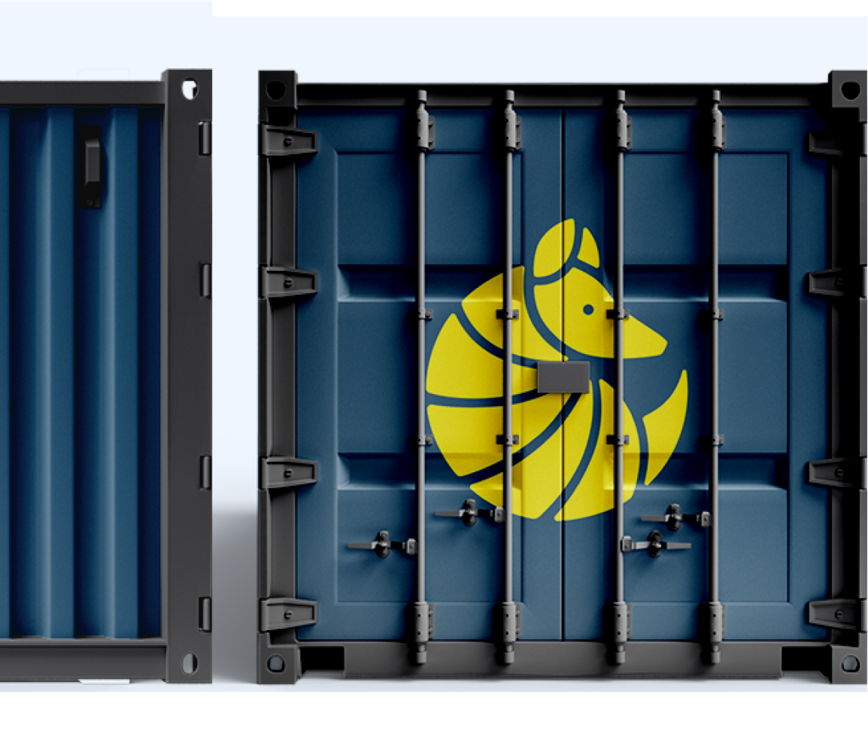
6. Shipping Containers Are Easy Set-Up

Constructing a storage space from scratch is expensive. The costs of materials like lumber have skyrocketed in recent years, making the construction of heartland barns and similar outbuildings cost prohibitive. Shipping containers, on the other hand, provide the same amount of storage space at a more budget-friendly price.
Opting for a shipping container will also take a lot less time for you to set up your storage space. Shipping containers are fully constructed upon delivery. You can offload one onto your lot and use it as-is. Even if you decide to do renovation work to your storage container, the process will be much faster than planning a brand-new build.
7. Shipping Containers Can Be Moved
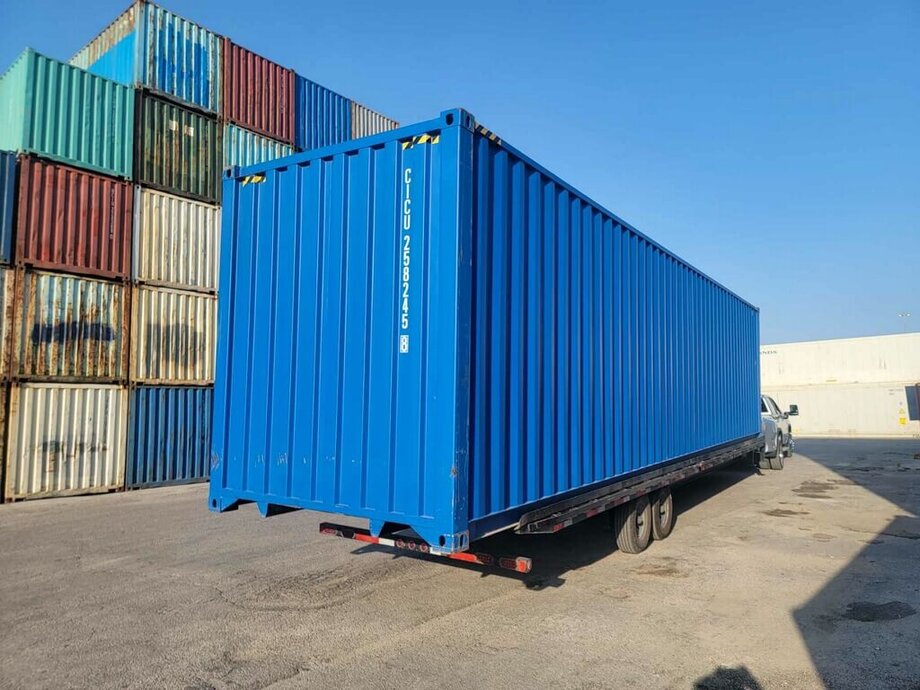
You can’t uproot rented storage units or freshly constructed outbuildings, but you can certainly uproot shipping containers. Shipping containers are created with portability in mind. With the help of a forklift, you can bring your storage container to an entirely different location on your property. And with a tilt-bed or roll-off trailer, you can take your container to an entirely new property with ease.
8. Shipping Containers Are Versatile
If you no longer need your shipping container for storage, you don’t have to get rid of it. Instead, you can use your container for ideas beyond storage. For example, you could use your shipping container for moving. Pack up your equipment, supplies, or furniture inside the shipping container, and then have a truck transport it to your newest destination.
Feeling handy? You can even convert your shipping container into a full-time home or accessory dwelling unit (ADU). Use our simple guide for finding the right container to learn the difference between a one-trip grade container, a cargo-worthy container, and a wind and water-tight container.
9. Shipping Containers Have Resale Value
Renting a storage unit is a sunk cost. That money will be out of your pocket for good.
Shipping containers, on the other hand, have resale value. If you use a shipping container for storage for a period of time and then decide that you don’t need it anymore, you can sell it and recoup a substantial portion of the costs.
How to Set Up Your Shipping Container as a Storage Unit
Find the Right Container
The first step in setting up a shipping container self-storage unit is finding the right container. You can select the container size and condition for your needs. Before purchasing your container, make sure you have a secure, permitted space to offload your container.
If you intend to use the container for permanent storage, you may want to pour a concrete foundation for the unit ahead of time. This can increase the structure’s stability, ensure level flooring and limit risks of groundwater intrusion.
Add Electrics (Optional)
You may want your self-storage unit to be connected to your property’s electrical grid. This connection will allow you to install lighting, security cameras, and electronic features inside and outside the container.
Insulate the Walls (Optional)
If you’re storing temperature-sensitive items, you may want to consider adding framing and insulation to your shipping container storage unit. This will aid with indoor climate control, making sure your items stay in top condition in heat waves and cold snaps.
Organize It
If you’re storing large items, you may not need to add any shelving inside the units — keeping the floor space open would be a better choice. If you’re storing small items, add shelves, cubbies, and cabinets to arrange your items. Boxhub has a range of container modification kits to choose from, with each enabling you to upgrade your container in as little as 45 minutes.

About Nina Barango
Nina Barango is an experienced content marketer and container expert with a proven track record in the tech and logistics industry. Having worked with various startups and SMEs, she bridges the world of marketing, tech and shipping containers. When she's not creating content that'll revolutionize global container trade, you can find Nina reading a book or mastering her video editing skills.
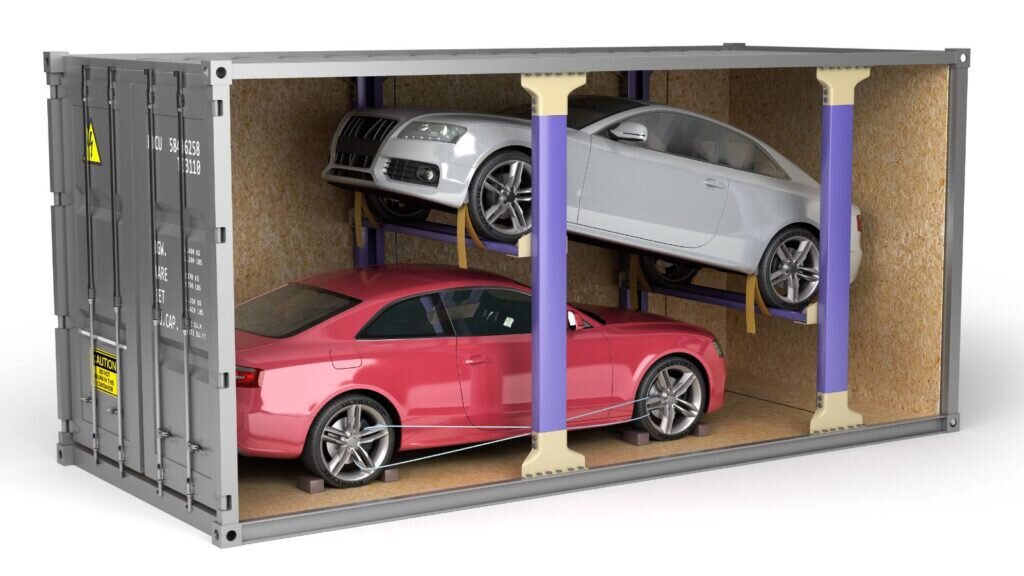

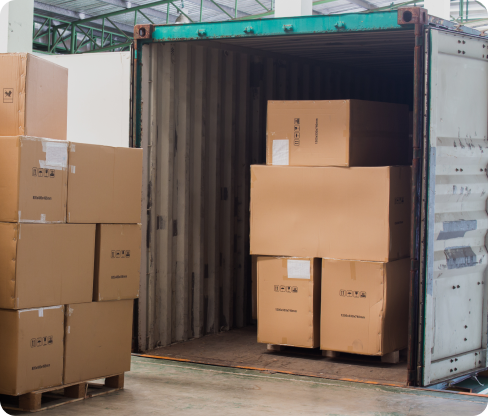

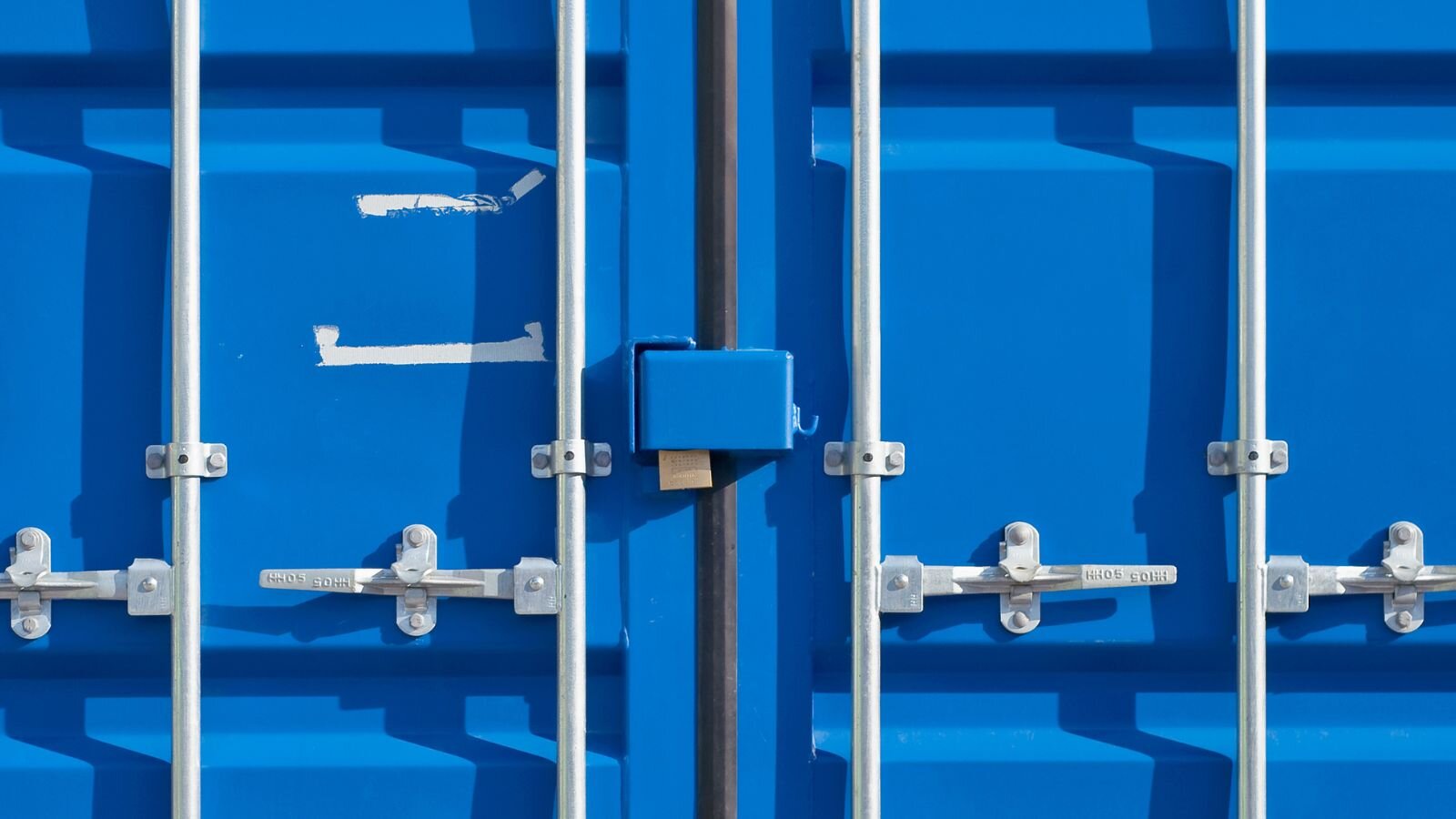


Continue Shopping
Loading cart

